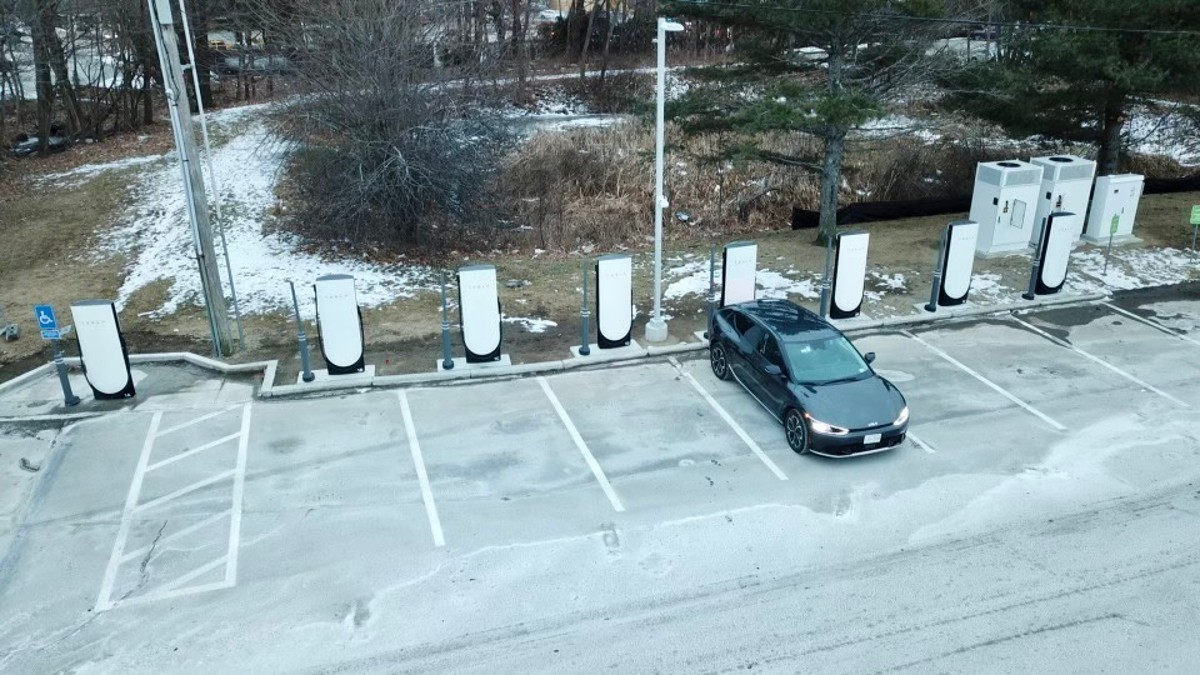Maine Powers Up: Inside the Launch of a Revolutionary Tesla Supercharger

Maine has officially entered a groundbreaking phase in the evolution of electric vehicle (EV) infrastructure with the inauguration of its first National Electric Vehicle Infrastructure (NEVI) Formula Program-funded EV charging station - a state-of-the-art Tesla Supercharger in Rockland. This monumental development is more than just a new place to plug in; it represents a significant leap forward in Maine's commitment to sustainable transportation and its adoption of clean energy technologies.

Located strategically in a bustling shopping center southeast of Augusta, in the scenic area of Midcoast Maine, the newly unveiled Supercharger boasts high-speed charging capabilities with 250 kW Supercharger ports equipped with both CCS and NACS plugs. This development comes as part of the broader initiative, Recharge Maine, aimed at creating a statewide network of public high-speed EV chargers and making Maine a leading state in eco-friendly transportation.
The funding for this innovative project, with five out of the eight ports designated as CCS ports, emanates from Maine's allocation of $18 million in NEVI funds - a clear indication of the state's dedication to advancing its EV infrastructure. The NEVI program itself is a pivotal component of the Bipartisan Infrastructure Law, setting aside $5 billion over five years to assist U.S. states in building a comprehensive network of EV charging stations to cater to the growing demand for electric mobility.
What sets the NEVI program apart is its stringent requirements for EV charging infrastructure. Charging stations must be available at intervals of every 50 miles and within a mile of the Alternative Fuel Corridor. Furthermore, these facilities are mandated to provide at least four ports with connectors capable of simultaneously charging four EVs at 150 kilowatts (kW) each, with a cumulative station power capacity exceeding 600 kW. Additionally, around-the-clock public accessibility and amenities like restrooms, food, and shelter are stipulated to ensure user convenience and enhance the broader EV charging experience.
This endeavor is part of a larger tapestry of Tesla's strategic positioning to capitalize on the Biden administration's push for an enhanced EV charging infrastructure across the nation. According to a report by POLITICO’s E&E News, Tesla is leading the charge in the implementation of this vision, securing almost 13% of all EV charging infrastructure awards under the Bipartisan Infrastructure Law, translating to over $17 million in grants. Such investments underscore Tesla's pivotal role in shaping the future of EV charging capabilities in the U.S.
For residents of Maine and visiting EV owners, the Rockland Supercharger is a beacon of progress, reflecting the concerted efforts of state and federal authorities, alongside private enterprises like Tesla, to build a sustainable and accessible EV ecosystem. As the landscape of transportation continues to evolve, such initiatives are critical in paving the way for a cleaner, more efficient, and environmentally-friendly future.
In conclusion, Maine's debut of its first NEVI-funded Tesla Supercharger marks a significant chapter in the state’s journey towards embracing clean energy and enhancing its EV charging infrastructure. It signifies a step forward in the collective endeavor to foster a healthier planet through the promotion of electric vehicles.